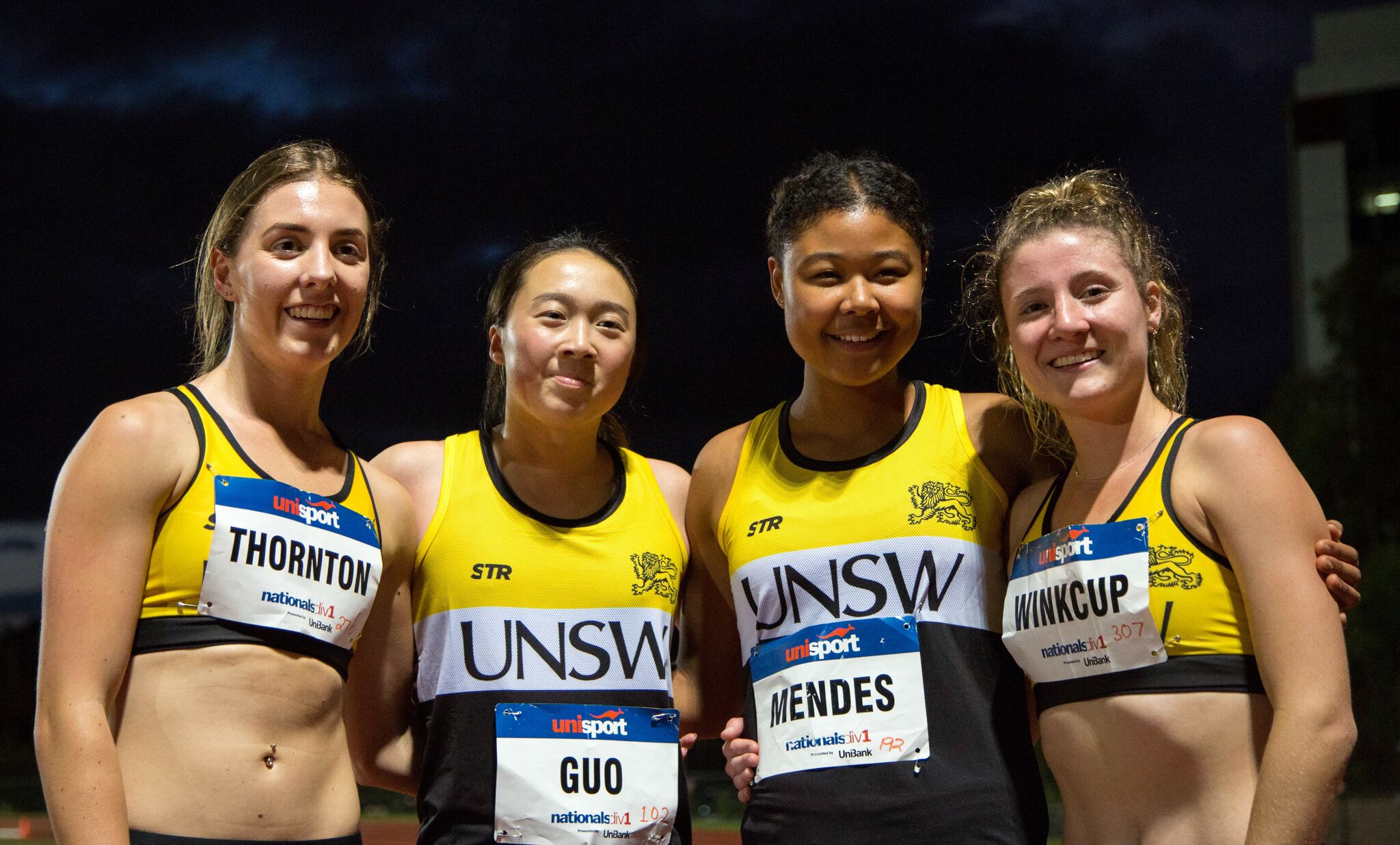 UNSW 2025 Women’s Sport and Active Recreation StrategyFISU Gender Equality Awards honours projects or individuals who have made significant efforts to advance and achieve gender equality within University Sport in their country, continent or internationally.
UNSW 2025 Women’s Sport and Active Recreation StrategyFISU Gender Equality Awards honours projects or individuals who have made significant efforts to advance and achieve gender equality within University Sport in their country, continent or internationally.
FISU supports projects that increase the participation of women in the University Sport movement and encourages its members to develop these projects in order to inspire others to increase their efforts and resources committed to this topic.
The winners of the FISU Gender Equality Project will receive a grant up to 5’000€ from FISU and the key criteria will be based on sustainability and replicability. Therefore preference is given to projects which are being continued by the nominating organisation for a number of years into the future and can be replicated/implemented in other countries.
Here is a summary of the projects received for the 2021 FISU Gender Equality Project Award:
The Walking Steps Challenge – Bethelem University, Palestinian University Sport Federation
The project was designed to increase women and girls’ participation in sport at the university and nearby community, launched in March 2020 at Bethelem University. Over 300 students and graduates taught to deliver the walking steps challenge with their families to raise awareness on the importance of sport and physical activity in female Palestinian and Arab societies. The project resulted in an increase of physical activity of students and their families during the pandemic.
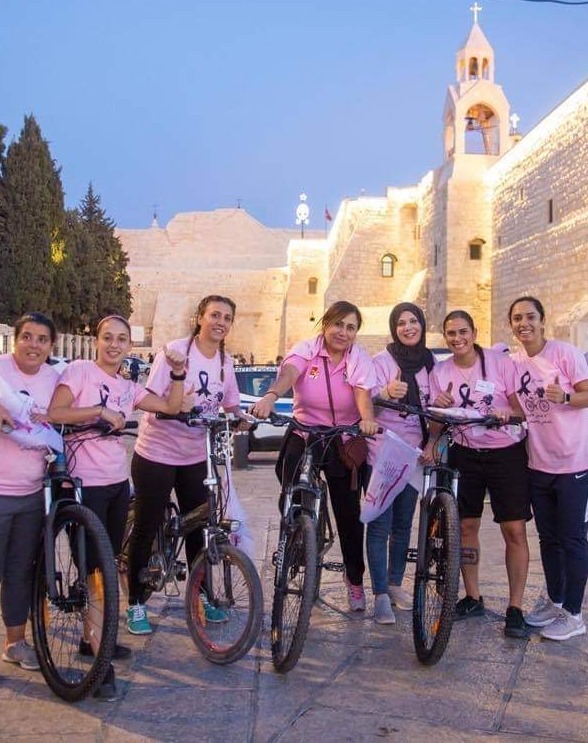
UNSW 2025 Women’s Sport and Active Recreation Strategy – University of New South Wales, UniSport Australia
The UNSW 2025 Women’s Sport and Active Recreation Strategy is a long-term project. The strategy focuses on four key pillars:
-
Participation: Increase women’s participation in sport and active recreation at the university
-
Investment & Infrastructure: Secure funding to develop the strategy and to make places and spaces on campus more inclusive and inducive to women’s participation
-
Marketing & Promotion: Increase visibility of female students and staff in sport and active recreation on campus
-
Leadership & Governance: Increase the number of women in leadership, coaching and officiating positions on and off the field and develop inclusive sporting cultures among UNSW clubs and communities
The project is currently in implementation stage one and aims to make sport and active recreation more accessible for women from all groups to participate in and around campus by 2025.
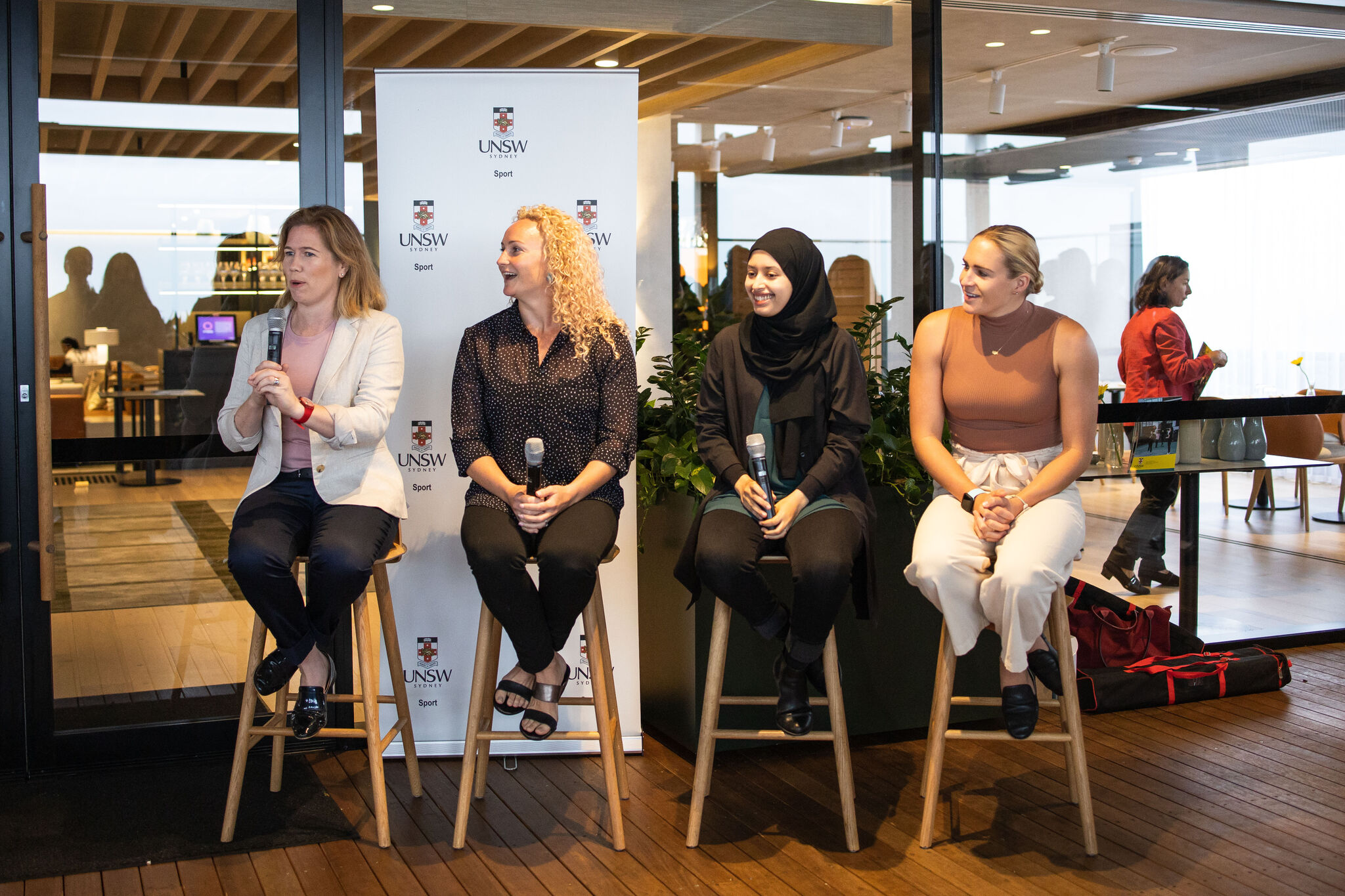
The FA University Women’s Leadership Programme – British Universities and Colleges Sport
The programme was delivered in 2019 and identified a gap in women’s talent development pathway, which was a barrier to their aims for increasing female workforce representation within the Football Association (FA). The project aims to play a major role in increasing the quantity and quality of female talent in the leadership pipeline to support the FA in assuring a fit for future representative workforce.
Over the course of the programme, participants attended three weekend residential development programmes, designed to develop their skills in different areas such as “Resilience & Adaptability”, “Powerful Communication”, “Collaborative Teamwork”, “Creative Solutions”, “Planning, Organising & Delivering”, “Providing Leadership” to name a few.
The objectives included the increase of knowledge and understanding of the working landscape of football (1), support the participants to define clear career goals/ambitions whether in the short, medium or long term (2), develop self-confidence and belief in their ability to succeed (3), build understanding and self-awareness of own strengths and potential areas for development (4) and expand the professional network of the participants (5).
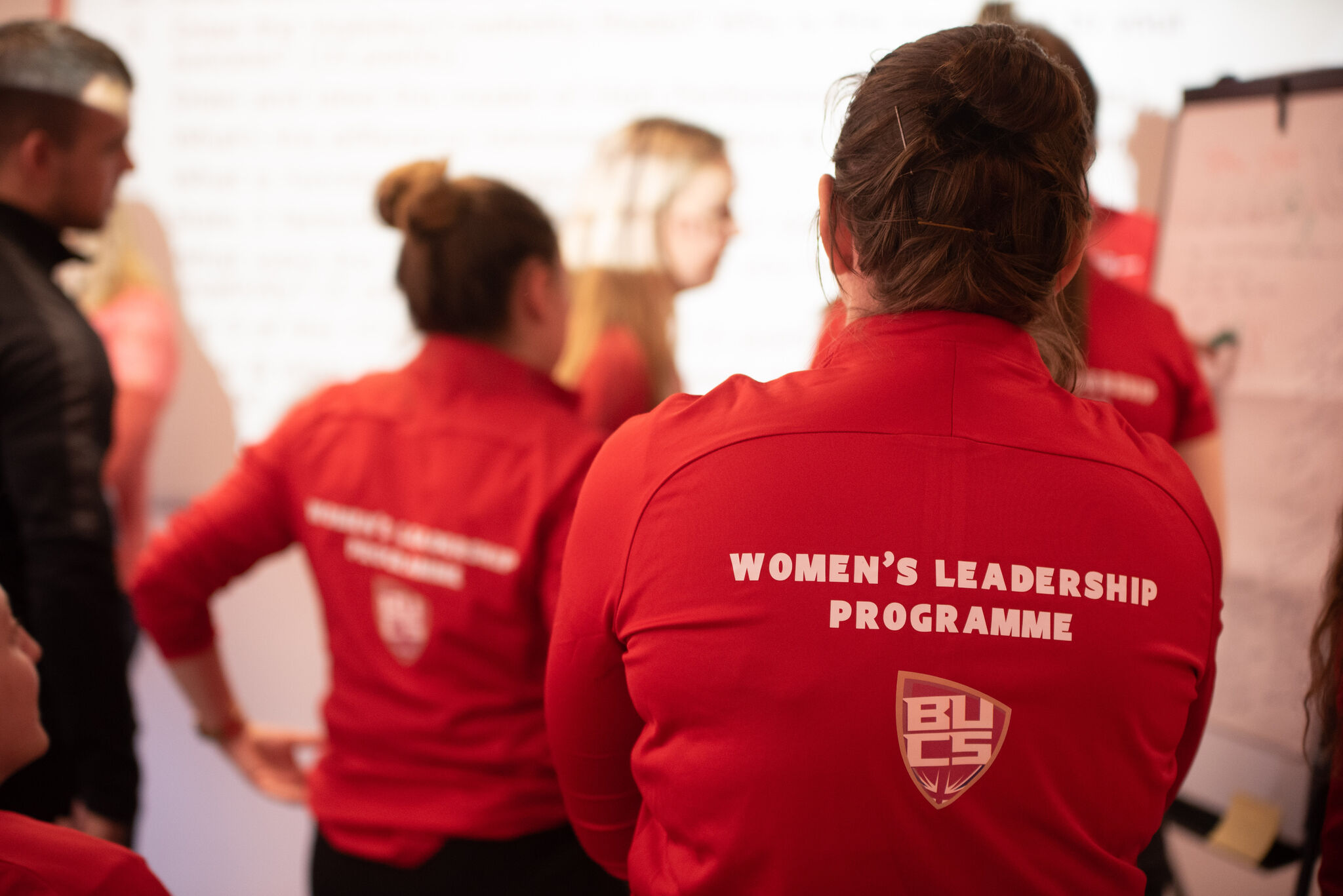
Girls’ Night In – University of Nottingham (UoN), British Universities and Colleges Sport
The Girls’ Night In project was devised in the Summer of 2015 after female inactivity and wellbeing was identified as an area that could be improved within the UoN Sport offer to students with female (and those identifying as female), with a focus on first year and international students as a key target group. The aim turns all female students into high level competitors, but also to give them a chance to try different sports, make new friendships, support their wellbeing, and build their self-confidence around getting involved and taking part in activities outside of their comfort zone.
Being ran twice a year, the project involves a takeover of the £40million David Ross Sports Village and provides female students with the opportunity to try out a series of sample sessions in an environment that is fun, free, safe, and inclusive. With a focus on first year students, the event also looks to support students’ integration into university at a vital transition point in their life. This is achieved through facilitating cross-cultural engagement and the opportunity to develop friendship groups which help students establish their support networks and secure a sense of belonging.
Since the event was launched, over 2’100 female students have accessed the event. Sports Clubs have reported that following Girls’ Night In events, they have seen growth in club membership and people getting involved with their sessions. There are also now more female students taking part in the Engage Programme, an all-year round programme of introductory sport sample sessions (54% female, 46% male).

Female Student Athletes Support Program – University of Western Cape (UWC), University Sport South Africa
In 2015, UWC Sport adopted a deliberate approach to prioritize recruitment of female student athletes as one of its main strategies to promote women in sport empowerment and liberation. In 2017 more allocation of resources (scholarships, accommodation, affiliation and participation in competitions, conferences and development seminars) was made towards women’s teams and it was decided that all women’s teams will be coached by women. Each male coach that was coaching women at the time was given the responsibility to identify and develop a female coach within his team or start identifying a female coach that would take over in two years’ time. This also translated to student leadership structures where the Student Sports Council’s constitution was amended to allow for 60/40 representation in the executive committee, with women in the majority.
The overall objective of the project is to create space for women to exercise their rights and freedoms, get access and success to education through sport, and be accepted by society as equal partners to men. The project is targeted to girls and women that strive to use sport as a tool for their development and it was developed as one of the tools to address the legacy of women’s oppression that was created by the Apartheid regime. The project is also aimed at educating and training young women to be independent and use their sporting talents to contribute meaningfully to society, especially given the history of women in African societies.
UJRC Women’s 7’s Imbokodo – University of Johannesburg (UJ) Rugby Club. University Sport South Africa
The UJ Ladies’ “Imbokodo” project rugby team was started in 2013 and aims to develop women’s rugby as there was a huge interest from the university students but importantly to promote women in sports, inclusivity, diversity, and transformation as rugby has always been a male‐dominated sport.
The team participated in its first University Sports South Africa Tournament in 2013, and two years later finished second and were awarded their first medal. In the same year, three of the team members were selected to be part of the SA Students team.
Over the years, the project has evolved, hosting the Women’s Day 7’s rugby tournament, which includes schoolgirls (under 16 and 18) and open club teams. Proceeds from this tournament, are used to donate sanitary towels to disadvantages schoolgirls around the community and the project’s first charity includes a school shoe drive, which happens at the start of the year. The project also includes coaching clinics at high schools as part of promoting women’s sports and as a recruitment drive.

20×20 Women in Sport Third Level Members Campaign – Student Sport Ireland
Launched in October 2019 and run over a 12-month period, the 20×20 Third Level Members Campaign aimed to promote women in sport in colleges and universities across Ireland. After a national launch, colleges and universities aligned the 20×20 charter to commit to specific, realistic and ambitious targets around Women In Sport under three project pillars:
-
Increased participation
-
Increased media coverage
-
Increased attendance
The project aim was to increase each of the pillars by 20%. Student Sport Ireland set out a timeline for the twelve-month project which included setting up a Data Collection template for Third Level Members (TLM’s) to complete throughout the project and four workshops were organised for TLM’s to share ideas and present projects undertaken to increase the three pillars.
Student Sport Ireland developed a 20×20 Third Level Members Award where colleges got the opportunity to promote their best initiatives using presentation videos.
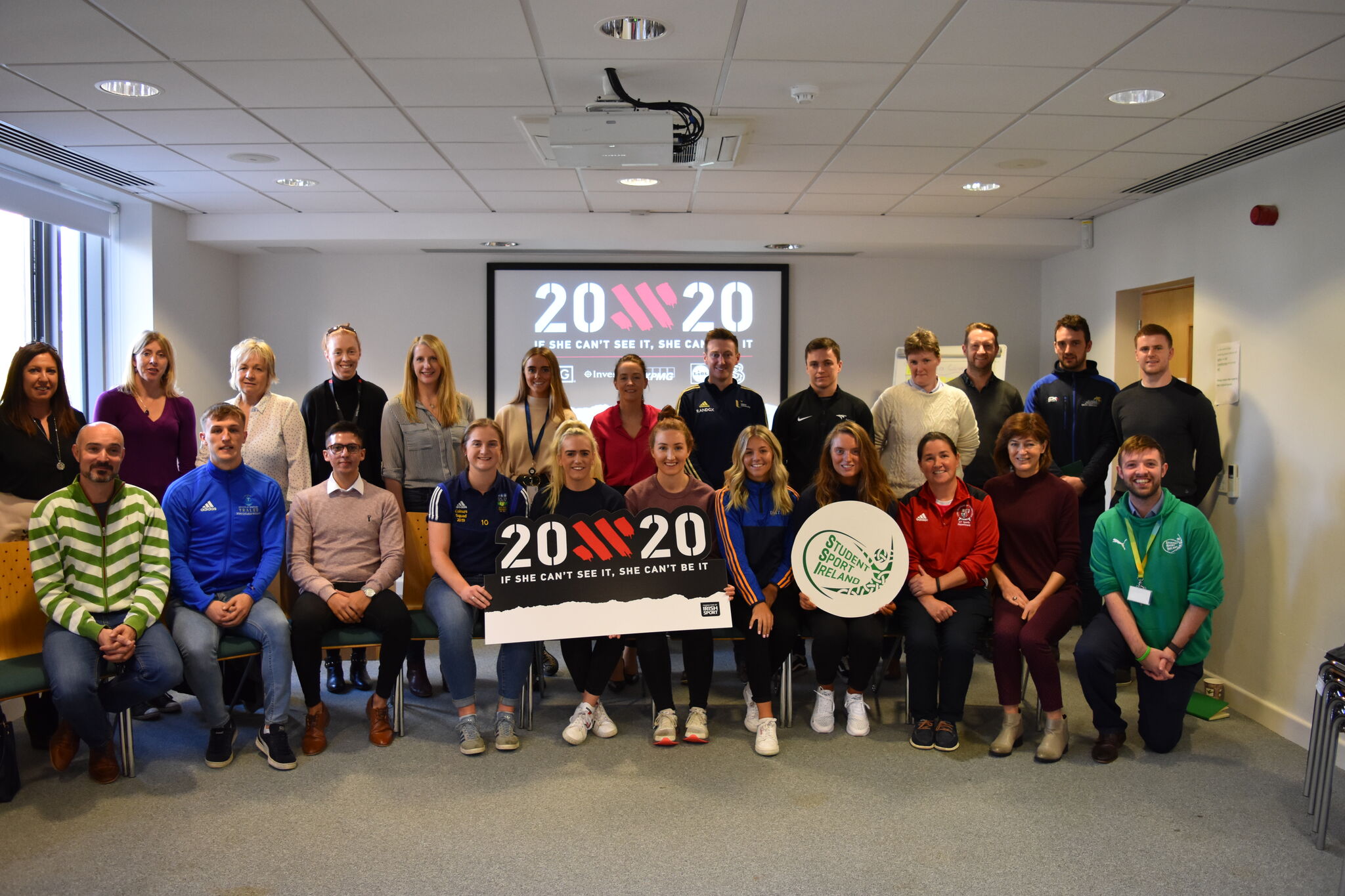
U SPORTS Female Apprentice Coach Program – U SPORTS Canada
Launched in 2020-2021, the U SPORTS Female Apprentice Coach Program is aimed at targeting the rich source of potential coaches in the ranks of recently graduated female-identifying student-athletes and developing a new apprentice coach position to attract these potential coaches to university athletic teams.
Incentives are offered to institutions that offer apprentice coach positions on their coaching staff in the U SPORTS sanctioned sports of field hockey, rugby, soccer, cross country, track and field, swimming, wrestling, curling, volleyball, basketball, and hockey.
A Leadership Development component has been added to the programme for the next season of 2021-2022. The Female Apprentice Coach Leadership Development Program runs from May 2021 to March 2022 and includes an educational and discussion session for apprentice coaches, mentor coaches and athletic directors to explore transformational leadership development and women in coaching. The athletic directors, associate athletic directors and mentor coaches will have access to a total of five sessions, while apprentice coaches will have access to 14 sessions and four discussion sessions in addition to reflection activities.
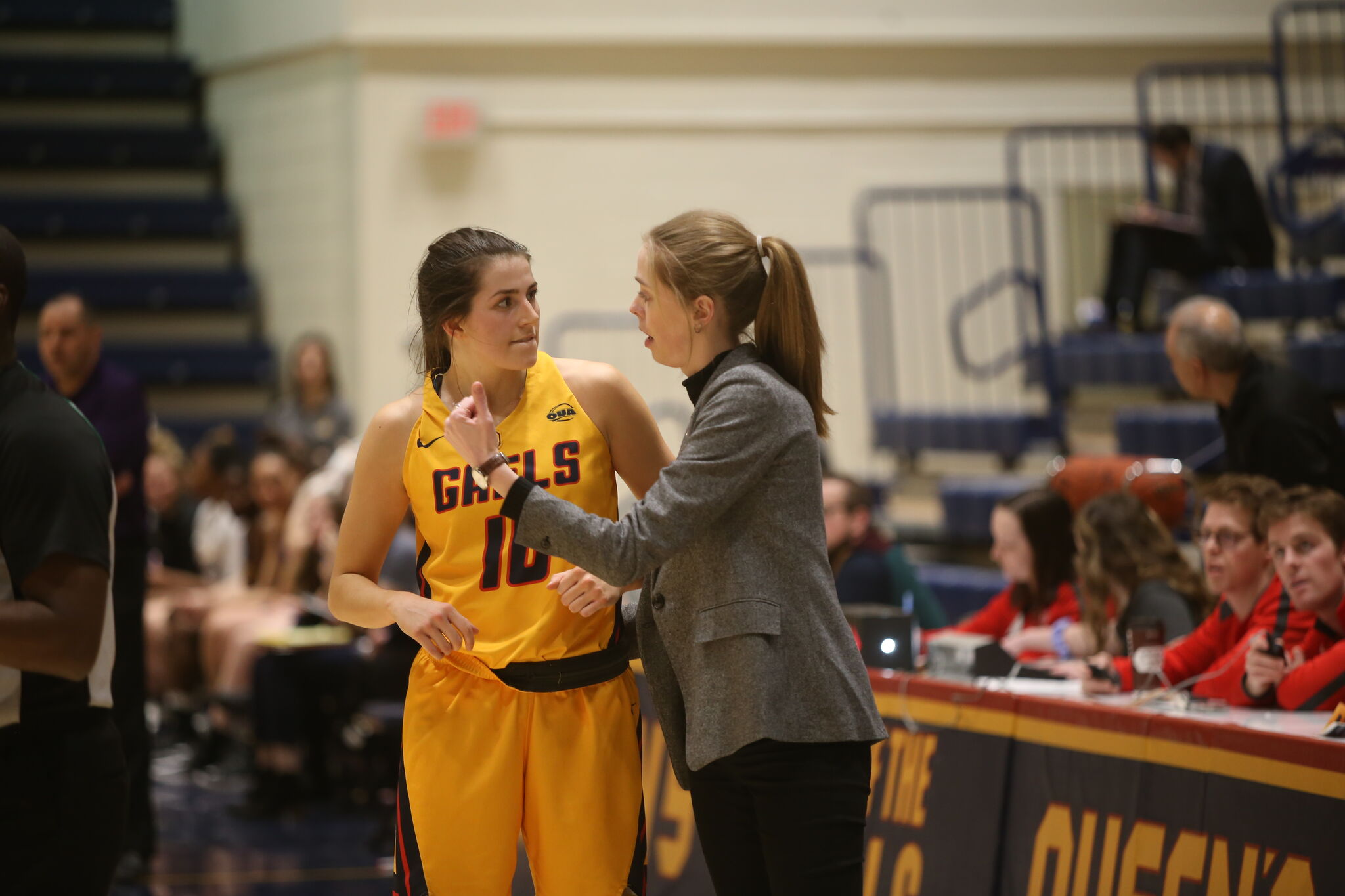
“Hacia un deporte igualitario” – Towards an egalitarian sport – Federación del Deporte Universitario Argentino (FeDUA)
Developed during 2020 as a consequence of the pandemic and the isolation, the project launched an educational platform of workshops and seminars of genres and sports, in a digital/virtual format, together with the universities and higher-level institutions. The objective is to develop a platform for exchange and debate on gender and sports that allows to continue building an egalitarian Argentinian university sport.
Currently in Argentina there are big differences between genres in terms of possibility of access, participation, permanence, and representation of women compared to men in the field of sports, which is also reflected in the field of university sport. With the aim of being able to build a more egalitarian university sports, this project aims to generate at least a platform where these topics could be visible, discussed as tools for changing the reality so that institutional decisions have a gender perspective across the board.